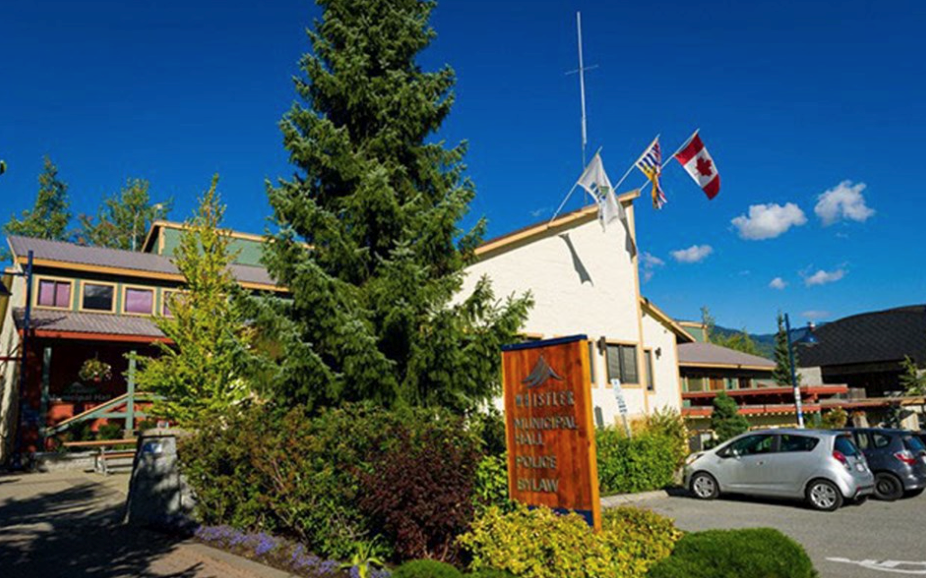The dust has settled. Lawn signs gone; all- candidates meetings a faint memory. Now all that’s left is the swearing-in of council, then reality and all the hard work kicks in for the next round of municipal politics—the level of government that affects us the most but seems to attract us the least.
As the latest election cycle fades, there’s still one thing I can’t get out of my mind—your Opening Remarks in the run-up to the election in the Sept. 29 Pique: “The loneliest job in Whistler.”
My heart broke reading that, then it broke again when I saw the online version with that haunting photo by Dave Buzzard. It shows one intrepid and very lonely reporter (you?) and one other lonely soul in a sea of empty seats at a Whistler council meeting.
I can promise you, and so can hundreds of others, that the 2011 election wasn’t the only time people got involved big-time in Whistler’s civic affairs.
For five years I worked—hard—at the Whistler Question, Whistler’s first newspaper. Ironically, its fifth anniversary issue was my first as a cub reporter, who covered council. Its 10th anniversary was my last, as the youngest publisher in Canada and one of only three women who owned a newspaper.
The Question was about five years younger than the Resort Municipality of Whistler, and council meetings in the early municipality were usually packed to the gills with those peanut gallery rabble-rousers you describe. They— both the meetings and the rousers—were more entertaining than after-hours at Tapley’s. There was even more than one reporter on hand, from The Question, The Squamish Citizen, Mountain FM, and maybe even a rouser or two from The Whistler Answer.
People had a stake in their community. And guess what? They still do, as does everyone who lives in a democracy. I’m not sure what’s happened that people feel like they don’t.
Sure, that was the ’80s and the village was just taking shape. But people, regular people—old ones, young ones, busy ones and just plain busy-bodies—had spent hours and more hours thinking, planning, yakking, and debating what Whistler would be long before then. Sometimes it was exciting and sometimes it was plain boring, but that’s democracy.
I remember one day out of the blue, our instructor at journalism school flabbergasted us. “So you know that journalists are just frustrated politicians,” he said. “No way!” we protested, outraged. “We’re there to keep them in check!”
Maybe it’s both. Either way, I took a run at office. Twice, in the early 2000s, and the only reason why was climate change. It scared the crap out of me then, and scares me even more now. I didn’t get in. Close—only 47 votes away—but no cigar. Tell me again how your vote doesn’t matter.
I’d been on dozens of civic committees, went to countless council meetings, and— being really old-school in thinking that one should be prepared for such a responsibility— read tons of books and articles on politics and democracy and civil society and civic engagement. One thing stuck out like that “loneliest job in Whistler.”
It was in an essay on U.S. history in Harper’s Magazine, one of the best publications on the planet: People living in the Thirteen Colonies in early America spent an average—repeat, average—of 12 hours a week on civic affairs.
Think about it! Twelve hours a week! About half the time the average Canadian today spends each week watching TV or videos. That would be, like, one or two evenings a week and maybe all day Saturday, working with your neighbours to decide where to put the new school, where you were going to redirect the local stream, or how wide to build the new path.
Democracy is an activity, and everybody pitched in.
Like your editorial, and so many others have said, the politics of engagement—the politics of democracy—is dying. It’s being replaced by the politics of grievance—a remote, reactive approach fuelled by complaining. Even in 2011, when Pique readers said the most sustainable thing Whistler did was “electing a new council,” that was the politics of grievance. Ditto the low grumble in the back of the room today.
So remember what Winston Churchill said in 1947, two years after Hitler and Mussolini were defeated: “Democracy is the worst form of Government except for all those other forms that have been tried from time to time...”
There’s something eternally sad and, worse, dangerous, about “giving over” political power because you can’t be bothered, then taking the passive-observer path until you get really pissed off and vent (anonymously?) on social media.
The election—pffft, it’s history. Now the real work begins, and the more hands on deck the better, whether you’re running a farm, a resort town, or a nation.
I really hope people don’t just sit back and wait four years to vote—maybe. I really hope that Whistler’s council chamber—every council chamber—is packed every meeting with people wanting to pitch in. There’s so much important work to do—the climate file, the housing file, parks, and more.
Imagine if every local spent 12 hours a week working on it—kids, teenagers, old rabble-rousers, everyone. I hope they add their two cents’ worth when they get a good idea, and when they get a lot of good ideas, they run for office one day and see what happens.
Democracy is so uncool it’s cool. But it only works when you’re not the only one in the echoing chamber.




